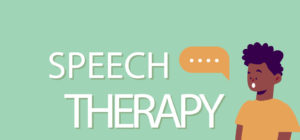Neurological conditions can present significant challenges to communication for adults, affecting speech, language, voice, and cognition. However, with the guidance and support of speech therapists, individuals can learn strategies to overcome these obstacles and improve their quality of life. In this article, we’ll explore the role of speech therapy in helping adults with neurological conditions manage communication challenges effectively.
Neurological conditions such as stroke, traumatic brain injury, Parkinson’s disease, and multiple sclerosis can impair various aspects of communication. Speech difficulties, language comprehension problems, voice changes, and cognitive deficits are common challenges faced by individuals with these conditions. These communication barriers can significantly impact daily interactions, social relationships, and overall well-being.
Speech therapists play a crucial role in evaluating, diagnosing, and treating communication disorders resulting from neurological conditions. Through personalized therapy plans, they address specific communication deficits and work towards improving functional communication abilities. Speech therapy interventions focus on enhancing speech clarity, language comprehension and expression, voice quality, and cognitive-communication skills.
Techniques and Strategies:
- Articulation Therapy this is targeting speech sound production to improve articulation and intelligibility.
- Language Therapy addresses difficulties with understanding and using language through vocabulary-building exercises, comprehension tasks, and expressive language activities.
- Voice Therapy rehabilitates voice disorders through vocal exercises, breath control techniques, and vocal hygiene education.
- Cognitive-Communication Therapy enhances cognitive skills such as attention, memory, problem-solving, and executive function to support communication.
- Augmentative and Alternative Communication (AAC), implementing AAC devices and strategies to compensate for speech and language impairments.
In addition to direct therapy sessions, speech therapists empower individuals and their caregivers with knowledge and resources to facilitate ongoing progress outside of therapy. They provide education on communication strategies, environmental modifications, and assistive technology options to optimize communication in daily life. Collaborating with other healthcare professionals, such as occupational therapists and neuropsychologists, ensures comprehensive care and support for individuals with neurological conditions.
Speech therapy offers hope and support to adults facing communication challenges due to neurological conditions. By addressing speech, language, voice, and cognitive deficits through evidence-based interventions, speech therapists empower individuals to regain confidence, independence, and social connection. With dedication, perseverance, and the guidance of skilled professionals, adults with neurological conditions can overcome communication barriers and lead fulfilling lives.




